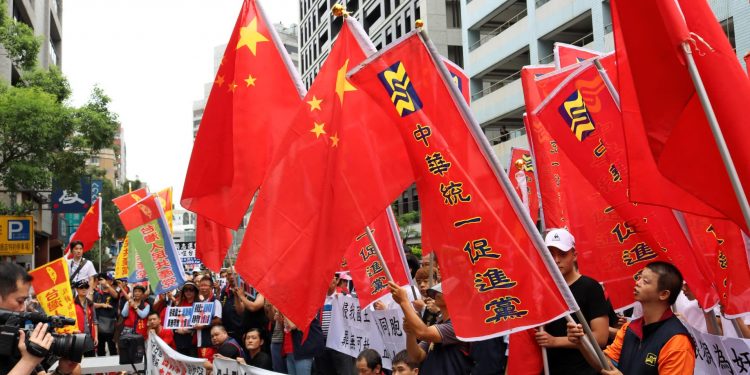Australia’s spy agency and police raided a lawmaker’s home Friday as they probed alleged Chinese influence operations and Prime Minister Scott Morrison warned the country would not tolerate foreign political interference.
The developments added to months of escalating tensions between the two nations, partly driven by Australia accusing China of economic ‘coercion’ and raising concerns over espionage.
Security agents on Friday searched properties linked to New South Wales state legislator Shaoquett Moselmane, who has long faced allegations of links to the ruling Chinese Communist Party.
Shortly after the dawn raid the Australian Security Intelligence Organisation told AFP that “search warrant activity is occurring in Sydney as part of an ongoing investigation”.
They added that there was no “specific threat to the community”.
Speaking after the raid, Morrison said Australia would “stand up” to any attempt at foreign interference.
“The threats in this area are real, the need to take action is necessary,” Morrison said. “We won’t cop anyone coming and seeking to interfere in our political system.”
Moselmane’s pro-Beijing positions and contact with party officials have long raised eyebrows even among colleagues in his centre-left Labor Party, which scrambled to contain the political fallout.
New South Wales party leader Jodi McKay said she was informed about the operation on Moselmane’s home and office and said she had begun the process of suspending his party membership.
“It’s dreadfully concerning,” she said. “It’s important that every MP focuses on the people in their state.”
Moselmane has publicly praised Chinese President Xi Jinping’s “unswerving” leadership during the coronavirus pandemic, contrasting it favourably with Australia’s own response.
Local media have reported he hired a staffer who trained at Beijing’s Chinese Academy of Governance, a school of party members going into public office, and made almost a dozen trips to China.
Some political foes had dubbed him “the member for Beijing”.
‘Insidious’ and systematic campaign
The operation is a signal of Australian authorities’ new willingness to tackle allegations of Chinese subversion of Australian politics and is likely to raise the temperature in an already fractious relationship between Beijing and Canberra.
Last year the former head of the Australian Security Intelligence Organisation, Duncan Lewis, said China wanted to “take over” Australia’s political system with an “insidious” and systematic campaign of espionage and influence peddling.
Lewis at the time cited the case of Labor Party power broker Sam Dastyari — dubbed “Shanghai Sam” — who was forced to resign in 2018 after taking tens of thousands of dollars from a Communist Party-linked donor.
Morrison’s government passed foreign-interference legislation following revelations that wealthy Chinese businessmen with links to Beijing had been bankrolling local parties and candidates across the political spectrum.
The law notably required the registration of any person or organisation acting on behalf of a foreign government.
As part of that crackdown, the government barred a high-profile Chinese businessman who held permanent Australian residency from returning to the country.
Australian authorities are also looking into a claim that China tried to recruit a Melbourne businessman and get him elected to parliament.
Bo “Nick” Zhao — a 32-year-old luxury car dealer who was a member of Morrison’s Liberal Party — apparently rebuffed the offer and was found dead in a motel room.
China has branded the claims “lies”, accusing “some politicians, organisations and media in Australia” of “cooking up so-called China spy cases”.
Last week Morrison revealed Australian government agencies, businesses and critical services were coming under a large state-sponsored cyber attack, which was widely suspected to be from China.
A recent survey from Sydney’s Lowy Institute showed the number of Australians who trusted Beijing to act responsibly on the world stage had fallen from 52 percent in 2018 to a record low of 23 percent.
China has become increasingly assertive under Xi, as Beijing looks to translate its rising economic might into political, diplomatic and military power.











